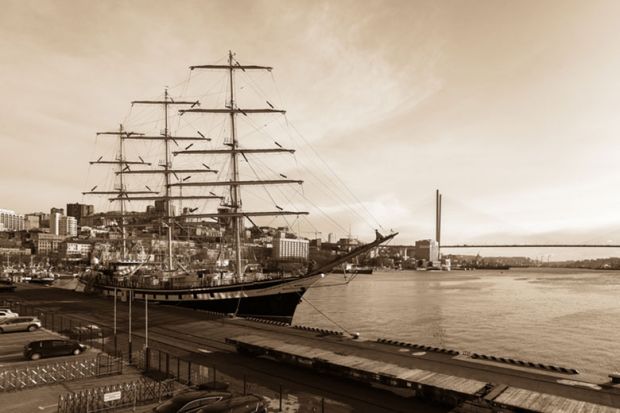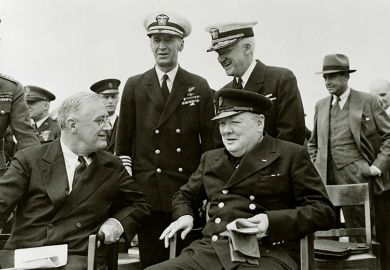In October 1852, the Russian sailing frigate Pallada departed from St Petersburg for a government-sponsored journey around the world. Officially, the aim was to inspect Russia’s North American possessions, but its real, secret mission was to head for Japan to open it up to trade.
On board as secretary to the commander was the Russian writer Ivan Goncharov, better known for his classic novel Oblomov, in which the eponymous anti-hero represents laziness incarnate. The irony is not lost on Edyta Bojanowska, who demonstrates that both the novel and the travelogue of this journey were calls for Russian modernisation to catch up with Western colonial rivals. Goncharov’s Frigate Pallada championed Europe’s and Russia’s imperial expansion as hallmarks of modernity and progress, promoting globalisation, free trade and the civilising of subject peoples.
Although Russia has been slow to be integrated into historical assessments of 19th-century European imperialism, it here joins the party as an increasingly assertive empire. Goncharov observed the practices of other empires on his voyage and reflected on Russia’s, asking: what can we learn? A lot, according to Bojanowska. The “unequal treaties” with Japan were economic exploitation without the messy business of conquest.
Russia was learning from the best – the British Empire, which had imposed similar treaties earlier on China. Goncharov also drew lessons on colonisation “best practice”, praising the British model observed in South Africa. Throughout the 19th century, the question of effective methods of colonisation troubled Russian administrators who practised settler colonialism in their vast continental empire, sending Slavs and Germans to Siberia, the southeastern steppe regions and Transcaucasia. While Goncharov avoided the rhetoric of colonialism in descriptions of Siberia, Bojanowska argues that the region operated in distinctly colonial ways and contests the notion that because the Russian empire was overland and contiguous, it was not an empire at all, but merely a sprawling fatherland.
Travel writing, she claims, informs us about “the beliefs, hopes, prejudices and frustrations” of the author – and, in this case, of the audience who voraciously consumed it. Her final chapter demonstrates how the values of successive Russian regimes were reflected in the editing of Frigate Pallada in the 20th and 21st centuries. The Soviet government, which ostensibly denounced capitalist imperialism, redacted its editions to present Russians as observers of Western colonialism, not perpetrators. Post-Soviet editions stressed Russia’s participation in imperial rivalries, resonating with the Putin era’s neo-imperial foreign policy in Georgia, Ukraine and Syria.
Bojanowska’s account aims for a “productive conversation between the writer’s crafted vision of the world he saw, the history known then, and the history known now”. The result is most impressive. This book is at once history and literary criticism; it is political, economic and cultural; it is national, international and transnational – and, to top it off, Bojanowska makes this ambitious feat look effortless.
Lara Douds is assistant professor in Russian history at Durham University, and author of Inside Lenin’s Government: Power, Ideology and Practice in the Early Soviet State (2018).
A World of Empires: The Russian Voyage of the Frigate Pallada
By Edyta Bojanowska
Harvard University Press
384pp, £25.95
ISBN 9780674976405
Published 27 April 2018
POSTSCRIPT:
Print headline: Next stop, imperialism
Register to continue
Why register?
- Registration is free and only takes a moment
- Once registered, you can read 3 articles a month
- Sign up for our newsletter
Subscribe
Or subscribe for unlimited access to:
- Unlimited access to news, views, insights & reviews
- Digital editions
- Digital access to THE’s university and college rankings analysis
Already registered or a current subscriber?








